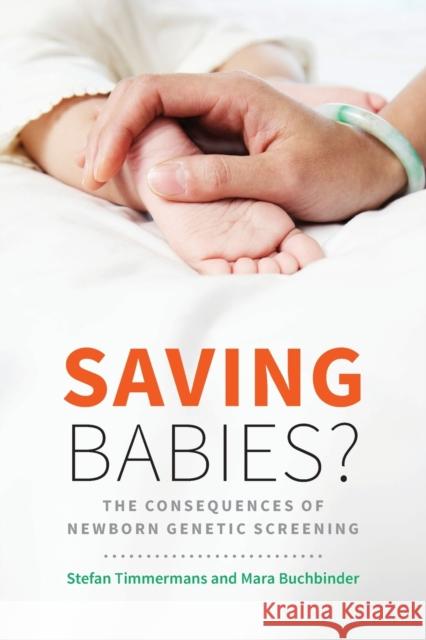Saving Babies?: The Consequences of Newborn Genetic Screening » książka
Saving Babies?: The Consequences of Newborn Genetic Screening
ISBN-13: 9780226273617 / Angielski / Miękka / 2015 / 320 str.
It has been close to six decades since Watson and Crick discovered the structure of DNA and more than ten years since the human genome was decoded. Today, through the collection and analysis of a small blood sample, every baby born in the United States is screened for more than fifty genetic disorders. Though the early detection of these abnormalities can potentially save lives, the test also has a high percentage of false positives-inaccurate results that can take a brutal emotional toll on parents before they are corrected. Now some doctors are questioning whether the benefits of these screenings outweigh the stress and pain they sometimes produce. In "Saving Babies?, " Stefan Timmermans and Mara Buchbinder evaluate the consequences and benefits of state-mandated newborn screening-and the larger policy questions they raise about the inherent inequalities in American medical care that limit the effectiveness of this potentially lifesaving technology. Drawing on observations and interviews with families, doctors, and policy actors, Timmermans and Buchbinder have given us the first ethnographic study of how parents and geneticists resolve the many uncertainties in screening newborns. Ideal for scholars of medicine, public health, and public policy, this book is destined to become a classic in its field.











